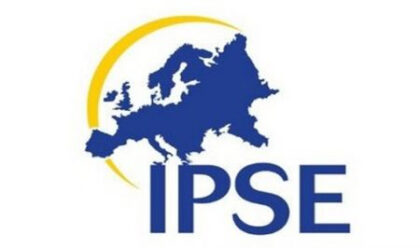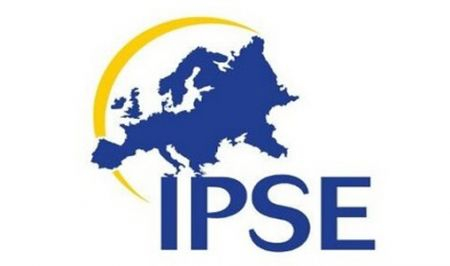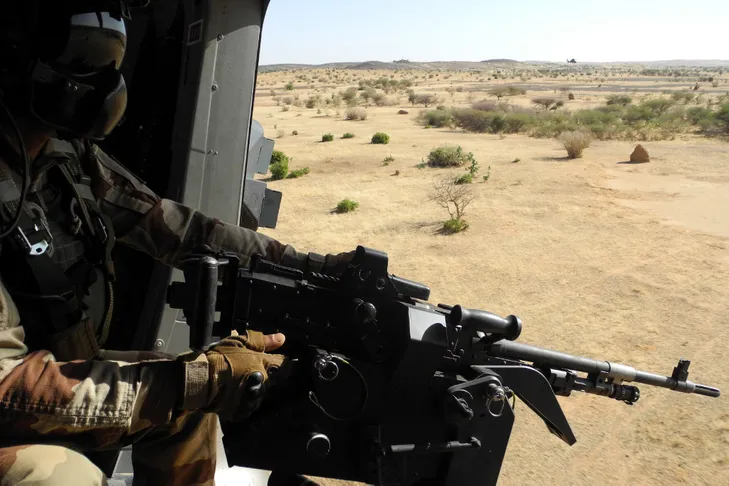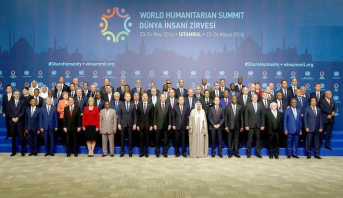 The Algeria-backed polisario front is an “imminent” danger at the gates of Europe and European countries are particularly concerned by the threat posed by this “entity”, especially in light of the connections that it is said to have woven in the Sahel-Saharan strip.
The Algeria-backed polisario front is an “imminent” danger at the gates of Europe and European countries are particularly concerned by the threat posed by this “entity”, especially in light of the connections that it is said to have woven in the Sahel-Saharan strip.
The remarks were made by Emmanuel Dupuy, president of the Institute for European perspective and Security (IPSE), a Paris-based think tank, specializing in geopolitical and geostrategic issues.
The presence of the leader of the Islamic State in the greater Sahara Abu Walid al-Sahraoui, who pledged allegiance to Daesh since the creation of this terrorist organization in May 2015, is one of the elements for which the international community, particularly the countries involved in Operation Barkhane, are mobilized”, the pundit said in an interview with MAP, ahead of a virtual conference on the theme “Threat of the Polisario for the Euro-Mediterranean region: an undeniable responsibility of Algeria”, organized jointly by the IPSE and the Mandela Institute.
Although the question of terrorism in the Sahel “does not necessarily interest all European countries (…), there is nevertheless in these countries a vigilance and an awareness of the interconnection by means of terrorist activists who cross the Sahel-Saharan strip and migrate into the Saharan space,” said this expert in geopolitics.
This is particularly true among the countries which are most involved in questions of terrorism, that is to say those which have had to experience terrorist attacks, namely Great Britain with the London attacks in 2005, Spain in 2004, and of course ten years later, the attacks which hit France. Other countries too have been struck by terrorism such as Sweden, Belgium and Germany.
“There are many people engaged in the fight against terrorism but not everyone is engaged at the same level,” he said, noting the disparate levels of involvement between European countries in the military fight against armed terrorist groups in the area.
He warned, in this context, that terrorist groups want to expand their operations grounds. “We are sure that there were several attempts to penetrate Senegal in February 2020, and a few days before the N’djamena summit, we were sure that the terrorist groups were preparing plans to raise their military activism and their nuisance capacity throughout the ECOWAS region and particularly targeting the Gulf of Guinea countries.”
This is why the stabilization of the Sahel-Saharan zone and the fight against terrorist groups which are thriving there require “a convergence of views” and “a real involvement of the organizations created to promote cohesion between states, in particular the CENSAD and ECOWAS”, he said, regretting that a certain number of countries do not belong to all these organizations, like Algeria which is not a member of CENSAD.
“All of this is a powerful legitimizing factor for including countries, like Morocco, which have a concern for the stability and security of their South, in this case the Sahara,” he said insisting on the paramount importance of counterterrorism cooperation between France, Spain and Morocco. “This cooperation is particularly welcome.”
In the same connection, Mohammed Ahmed Gain, university professor and president of the African Institute for Peacebuilding and Conflict Transformation, who was to participate in the IPSE-organized conference, said the separatist polisario front is today one of the main threats to the security of the Sahel-Sahara region and the Mediterranean basin, as confirmed by numerous reports from intelligence agencies and research centers.
The polisario’s threat comes mainly from its documented links with terrorist groups in the region, as well as with cross-border crime networks operating in the Sahel, including those active in arms and drug trafficking, Mohammed Ahmed Gain said, adding that the separatist group has close ties with Iran and Hezbollah, which are a destabilization threat that goes beyond the Sahel-Saharan strip.
The University professor pointed out that European countries, which are fully committed to fighting terrorism in the region and which are fully aware of the threat posed by the polisario, need to double their efforts to end the threat of this separatist movement, targeting the Sahara, a hub of stability in the Sahel region. He urged these European countries to come out of their silence and to engage in concrete actions so that the polisario is subject to the sanctions regime mandated by the Security Council, like the sanctions imposed on ISIS and other terrorist groups.



